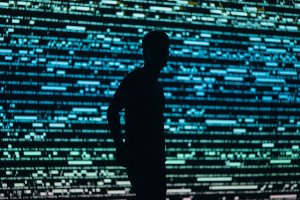Dewi Pratiwi Sumarni, Budi Santoso
The Effect of Digital Game-Based Learning on Improving Students' Social Skills in the Hybrid Education Era
Introduction
The effect of digital game-based learning on improving students' social skills in the hybrid education era. Discover how digital game-based learning enhances students' social skills like teamwork & communication in hybrid education. A study reveals significant improvement & high engagement. Boost student interaction.
Abstract
This study investigates the impact of digital game-based learning on the improvement of students' social skills within the context of hybrid education. A quasi-experimental design was used, involving 60 students from Universitas Pendidikan Nusantara, divided into an experimental group (n = 30) and a control group (n = 30). The experimental group engaged in a 6-week game-based learning intervention using the digital game "EduQuest," while the control group followed traditional face-to-face instruction. Data were collected using a Social Skills Scale (SSS), collaborative observations, and a satisfaction questionnaire. The results show a significant improvement in social skills in the experimental group, particularly in the areas of teamwork, communication, and conflict resolution (p < 0.01). In contrast, the control group showed no significant change in their social skills. Additionally, students in the experimental group reported high levels of engagement and satisfaction with the game-based learning approach. This study highlights the potential of digital game-based learning as an effective tool to enhance social skills in hybrid educational settings. The findings suggest that integrating digital games into learning can provide a valuable avenue for fostering collaboration and communication skills among students.
Review
This study presents a timely and highly relevant investigation into the efficacy of digital game-based learning (DGBL) for enhancing students' social skills, particularly within the increasingly prevalent hybrid education model. The use of a quasi-experimental design, including both experimental and control groups, provides a robust framework for assessing the intervention's impact. The clear and statistically significant findings, demonstrating considerable improvement in social skills—specifically teamwork, communication, and conflict resolution—within the experimental group, strongly support the potential of DGBL as an effective pedagogical tool. The reported high levels of engagement and satisfaction further underscore the practical appeal and student acceptance of this innovative learning approach. Methodologically, the study's 6-week intervention period and sample size of 60 students from Universitas Pendidikan Nusantara offer a solid foundation for its conclusions. The multi-faceted data collection, incorporating a Social Skills Scale, collaborative observations, and a satisfaction questionnaire, enhances the validity of the results. While the abstract effectively highlights the positive outcomes, a full manuscript would benefit from providing more granular detail on the specific components of the "EduQuest" game designed to foster social skills, and how the collaborative observations were structured and quantified. Furthermore, a brief description of the social skill development, if any, inherently present in the "traditional face-to-face instruction" of the control group would strengthen the comparison by clarifying the baseline. Exploring the effect size alongside the p-value would also provide a more comprehensive understanding of the magnitude of the observed improvements. Overall, this research makes a valuable contribution to the literature on educational technology and social-emotional learning, particularly within the context of hybrid learning environments. The findings have direct practical implications for educators and curriculum designers seeking innovative strategies to address the development of essential social skills in a digital age. Future research could explore the long-term sustainability of these gains, investigate the transferability of these skills to different contexts, or compare the effectiveness of various digital games and their specific mechanics in fostering different social competencies. Given its strong design and compelling results, this study represents a significant step forward in understanding the pedagogical utility of digital game-based learning.
Full Text
You need to be logged in to view the full text and Download file of this article - The Effect of Digital Game-Based Learning on Improving Students' Social Skills in the Hybrid Education Era from International Journal of Educational Insights and Innovations .
Login to View Full Text And DownloadComments
You need to be logged in to post a comment.
Top Blogs by Rating
Meme as Manifesto: Decoding th...
By Sciaria
Invisible Ingredients: Unmaski...
By Sciaria
Invisible Validators: Unlockin...
By Sciaria
Favorite Blog
The Butterfly Effect in Sports...
By Sciaria
Beyond Human Perception: Unloc...
By Sciaria
The Evolution of Knowledge in...
By Sciaria
Related Research
Branding kemasan dan logo pupuk organik cair (poca)
Pembelajaran problem based learning berbasis scaffolding metakognitif : efektifitas peningkatkan kemampuan pemecahan masalah matematis
Chemical profile of red dragon fruit peel (hylocereus polyrhizus) by gas chromatography - mass spectrometry
Share
Notice Board
- TELEPHONIC DESCRIPTIONS OF OUT-OF-HOSPITAL CARDIAC ARREST BY LAYPERSONS CALLING THE DISPATCH CENTRE OF A PRIVATE EMERGENCY MEDICAL SERVICE IN SOUTH AFRICA
- MITHAQAN GHALIZAN: EKSPLORASI MAKNA SPIRITUAL DALAM MENJAWAB FENOMENA "MARRIAGE IS SCARY" DI PLATFORM TIKTOK
- HUBUNGAN PENGETAHUAN DAN SIKAP REMAJA PUTRI TERHADAP KEPATUHAN MENGONSUMSI TABLET FE





